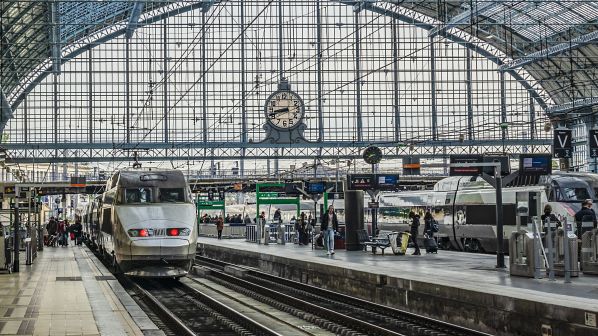THE French government and infrastructure manager SNCF Network have agreed to modify the structure of financing for the Great South West Railway Project (GPSO) to build new high-speed lines from Bordeaux to Toulouse and Dax, and the Spanish border near Hendaye, to make up for an expected shortfall in funding from local government.
French prime minister, Mr Jean Castex, launched the project in April 2021, confirming a €4.1bn commitment from the state to finance the 222km Bordeaux - Toulouse section, which is estimated to cost €10.3bn. The branch to Dax is budgeted at another €4bn, and under the government’s plan, the project would be financed 40% by the state, 40% by the local authorities of Nouvelle Aquitaine and Occitanie, and 20% by the European Union.
While the 16 communities that make up Occitanie are onboard for their combined €2.2bn commitment to the Bordeaux - Toulouse project, the situation is proving more challenging in Nouvelle-Aquitaine, where 11 local authorities are expected to contribute €1.8bn. The 11 authorities are due to confirm their intentions by November 30 so that a firm financing plan can be put forward by the region on December 13. However, several have refused to commit to the project. This includes the departments of Lot-et-Garonne, which is expected to contribute €120m, and Gironde, centred on Bordeaux.
The Gironde department council voted on November 22 to reject providing €268m to the high-speed scheme, instead allocating €170m to the Bordeaux Metropolitan government to support its development of a regional express railway (RER) and to finance existing railway improvements around Bordeaux. The Bordeaux Metropolitan government voted to approve its €364m allocation on November 25, although it is an issue that has exposed the weaknesses in the governing coalition with one side firmly against the project.
SNCF plans
Under the plans revealed by SNCF on November 23, a dedicated company will be set up to receive infrastructure usage charges from the line. These funds will be used to fund maintenance with the expected surplus of €1-1.7bn used to finance construction. SNCF has also confirmed that the scope of Société du GPSO (SGPSO), which was overseeing financing of the project, will be expanded to include project management, in a similar manner to Société du Grand Paris (SGP), which is overseeing the Grand Paris automated metro project.
As well as confirming finance for the project, the grand ordinance, which is expected in April 2022, will provide SGPSO with the authority to conduct engineering studies and construction management tasks. This structure is also expected to strengthen the role of local authorities in delivering the project, which it is hoped will result in improved control of costs.
GPSO proposes extending the line from Bordeaux to Toulouse and Dax in the first phase, and to the Spanish border in the second phase. Work is expected to commence on the Bordeaux - Toulouse section in 2024 with completion in 2030, and Bordeaux - Dax in 2027. Completion of the project will cut the Bordeaux - Toulouse journey time from 2h 10min today to around 1 hour, and the Paris - Toulouse journey time from about 4h 20min to around 3 hours.
SNCF president, Mr Jean-Pierre Farandou, visited Nouvelle-Aquitaine on November 19 to underline the importance of the project, meeting with Mr Alain Rousset, president of the Nouvelle Aquitaine regional council, and Mr Alain Anziani, president of Bordeaux Métropole, both supporters of GPSO.
In a press statement issued by SNCF, the three officials emphasise the significance of building the high-speed line for the future of the economy of Southwest of France. They also state that associated local railway improvements south of Bordeaux and north of Toulouse are essential to provide the capacity necessary for the growth of regional and local rail services, including construction of the Bordeaux RER, as well as provide greater capacity for rail freight.
A speech by French president, Mr Emmanuel Macron, in September underlined France’s commitment to expanding its high-speed network this decade, beginning with the Bordeaux - Toulouse project and followed by the Marseille - Nice and Montpellier - Béziers lines. The president had paused further expansion following completion of the Tours - Bordeaux Sud-Europ Atlantique high-speed line in 2017.
For detailed data on high-speed projects from around the world, subscribe to IRJ Pro.

